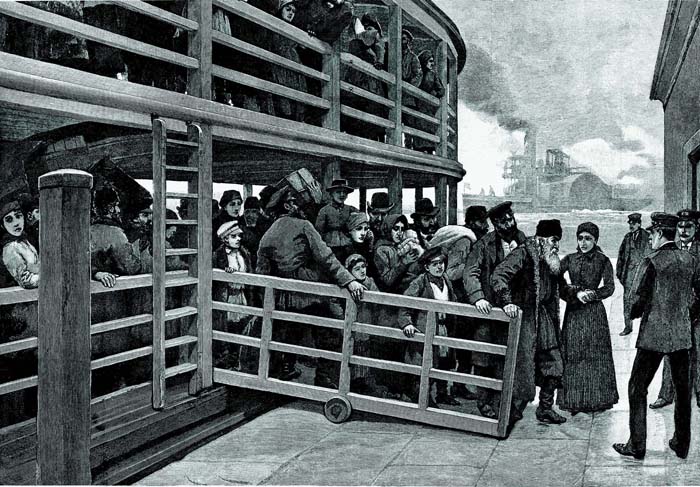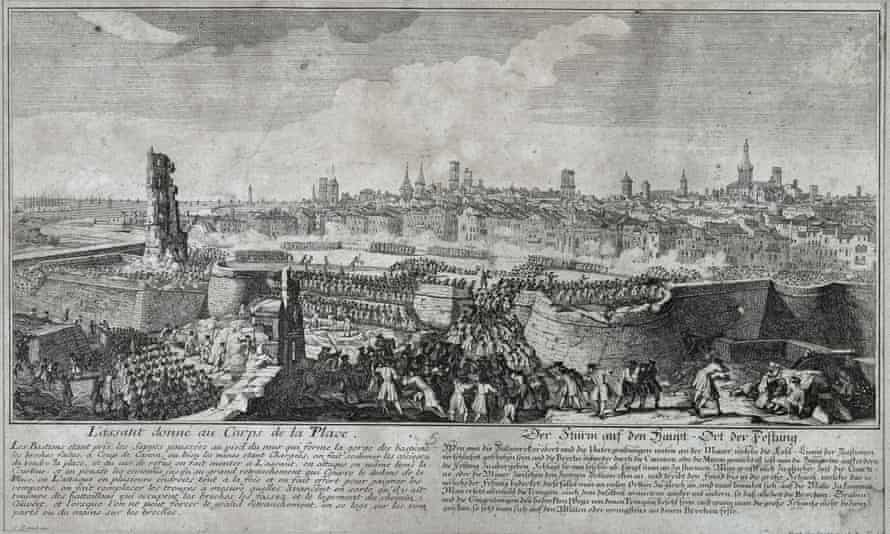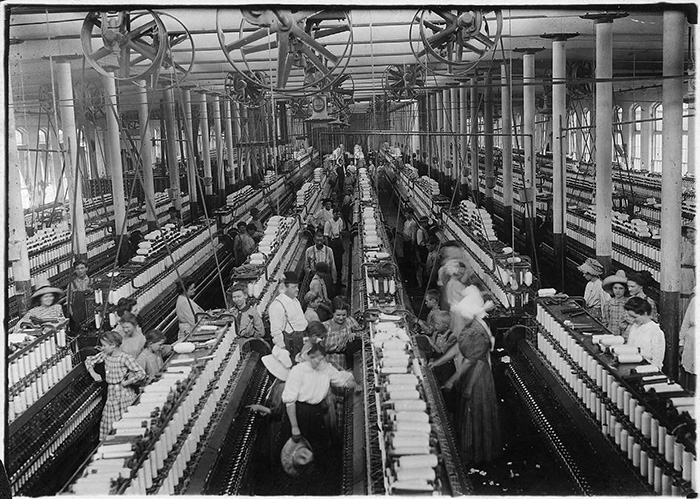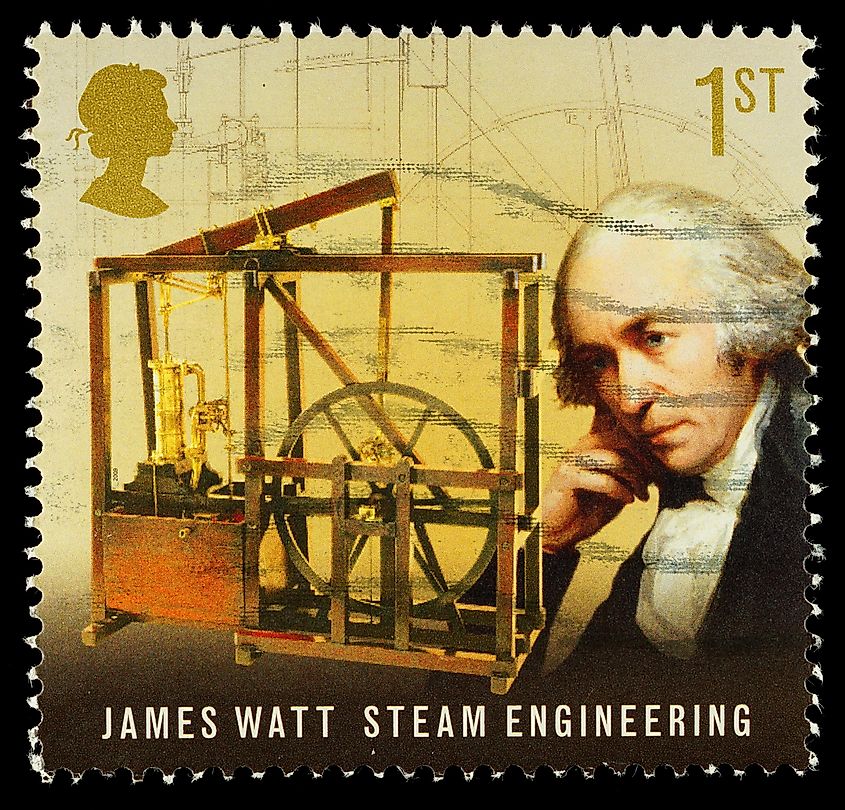41 why is urbanization associated with the industrial revolution
Why was industrial revolution a turning point in history ... Causes of urbanization include:Industrial Growth: The explosion of industrialization and manufacturing enterprises within a certain urban area gives rise to more employment opportunities — which is another factor of urbanization.Employment: Rural areas commonly are agricultural. Industrialization in the 19th century is MOST associated ... So many things, but I believe the best answer urbanization. Industrialization created job opportunities which centered on cities, which causing the ubranization from rural areas to the cities. Explanation: The second stage of Industrial Revolution occured in the 19th century.
List of 11 Major Global Problems of Urbanization | Earth ... Urbanization process started during the industrial revolution, and it is directly associated with industrialization that pulls the workforce from rural areas to cities to get jobs in factories, while agricultural jobs become less important. The land is used for sustainable development of infrastructure facilities in the cities, unlike rural areas.
/GettyImages-1230419950-e22af8167a5843d7b42b95d521f45492.jpg)
Why is urbanization associated with the industrial revolution
Urbanization In The Industrial Revolution | ipl.org Families was separated and forced to work every day. Despise these conditions, more people became desperate enough to become a workhouse inmate. When people from the countryside moved to the cities, it started the urbanization. This created new industries that made the growing cities a source of wealth in England. Why is urbanization associated with the industrial ... Why is urbanization associated with the industrial revolution? The expansion of family farms refocused the nation on agriculture •• The concentration of factories in cities brought job opportunities Settlers expanded the frontier west of the Mississippi River Immigration settled in large cities and brought culture diversity Difference Between Industrialization and Urbanization ... What is Urbanization? Urbanization is the process where people migrate from villages to urban areas. This can be considered as a consequence of industrialization. As explained in the first section of the article, the process of industrialization led to a change in the social structure from agrarian to industrial societies.
Why is urbanization associated with the industrial revolution. Why is urbanization associated with the Industrial ... The push factors of urbanization are caused by people leaving poverty, a lack of opportunity, and unemployment, while the pull factors include more opportunity, better amenities, and easier access. Industrial Revolution | World History Quiz - Quizizz answer choices. Children were not allowed to work in the mines during the Industrial Revolution. Work conditions were closely regulated. There were no labor laws that prevented children from working. Children were allowed to work but they were treated fairly. Tags: Question 12. SURVEY. 30 seconds. 1: Why is urbanization associated with the Industrial ... 1: Why is urbanization associated with the Industrial Revolution? A:The expansion of family farms refocused the nation on agriculture. B:The concentration of factories in cities brought job opportunities. C: Settlers expanded the frontier West of the Mississippi river. D: Immigrants settled in large cities and brought cultural diversity. How did the Industrial Revolution affect Urbanisation ... Why is urbanization associated with the industrial revolution? Industrialization has historically led to urbanization by creating economic growth and job opportunities that draw people to cities. Urbanization typically begins when a factory or multiple factories are established within a region, thus creating a high demand for factory labor….
Urbanization and the Development of Cities | Boundless ... For example, urbanization can create urban "heat islands," which are formed when industrial and urban areas replace and reduce the amount of land covered by vegetation or open soil. In rural areas, the ground helps regulate temperatures by using a large part of the incoming solar energy to evaporate water in vegetation and soil. What is French and Industrial Revolution? - Frank Slide ... Why was the industrial revolution delayed in France. Where in the world did the industrial revolution began? Britain Fueled by the game-changing use of steam power, the Industrial Revolution began in Britain and spread to the rest of the world, including the United States, by the 1830s and '40s. What caused rapid urbanization during the industrial ... What caused rapid urbanization during the industrial revolution? Industrialization has historically led to urbanization by creating economic growth and job opportunities that draw people to cities. Urbanization typically begins when a factory or multiple factories are established within a region, thus creating a high demand for factory labor. Why was there a population increase in the industrial ... why was there a population increase in the industrial revolution || Answer:There was a spike in the population before and during the industrial revolution and this is due to many reasons. Before the industrial revolution, there were some breakthroughs in medicine and more children could live. Besides this, there were …
What was the impact of the Industrial Revolution on ... Why is urbanization associated with the industrial revolution? Industrialization has historically led to urbanization by creating economic growth and job opportunities that draw people to cities. Urbanization typically begins when a factory or multiple factories are established within a region, thus creating a high demand for factory labor…. Population Growth, Industrial Revolutions, and the Urban ... industrial revolution. It is also central to the Todaro (1969) thesis that rising inmigration to the city can be associated with high and even increasing rates of urban unemployment. On the other hand, most economists tend to favor the second principal hypothesis, that is, those economic forces contributing to urban pull. Population Growth and Movement in the Industrial Revolution During the first Industrial Revolution, Britain experienced massive changes including scientific discoveries, expanding gross national product, new technologies, and architectural innovation.At the same time, the population changed—it increased and became more urbanized, healthy, and educated. This nation was forever transformed for the better. Петербург в царствование Екатерины Великой. Самый умышленный ... Джордж Манро · 2021 · EducationL., 1986; The Rise and Fall of Great Cities: Aspects of Urbanization in the ... Urban Growth or Population Growth Before the Industrial Revolution / van der ...
Социокультурная традиция и модернизация российского ... Сергей Назипович Гавров · 2002 · CultureThe English bourgeois revolution as a base for economic prosperity, industrialization, urbanization and the new capitalist relations.
Urbanization | History of Western Civilization II Before the Industrial Revolution, advances in agriculture or technology led to an increase in population, which again strained food and other resources, limiting increases in per capita income. This condition is called the Malthusian trap and according to some economists, it was overcome by the Industrial Revolution.
Industrial Revolution | History Quiz - Quizizz answer choices. Children were not allowed to work in the mines during the Industrial Revolution. Work conditions were closely regulated. There were no labor laws that prevented children from working. Children were allowed to work but they were treated fairly.
what caused urbanization during the industrial revolution ... Urbanization: An increase in a population in cities and towns versus rural areas, urbanization began during the industrial revolution, when worker moved toward manufacturing hubs in cities to obtain jobs in factories as agricultural jobs became less common.
urbanization - Impact of the Industrial Revolution ... The technological explosion that was the Industrial Revolution led to a momentous increase in the process of urbanization. Larger populations in small areas meant that the new factories could draw on a big pool of workers and that the larger labour force could be ever more specialized.
Urbanization - Overview | US EPA Urbanization refers to the concentration of human populations into discrete areas. This concentration leads to the transformation of land for residential, commercial, industrial and transportation purposes. It can include densely populated centers, as well as their adjacent periurban or suburban fringes (see Figure 1). Figure 1.
Актуальные проблемы мировой политики в XXI веке. Выпуск 8 Сборник статей, Ватаняр Ягья · 2017 · Political ScienceTheadvent of the Industrial Revolution and the subsequent urbanization, the movement of people from the countryside to more densely populated areas, ...
why is urbanization associated with the industrial ... Why Is Urbanization Associated With The Industrial Revolution? Industrialization has historically led to urbanization by creating economic growth and job opportunities that draw people to cities . Urbanization typically begins when a factory or multiple factories are established within a region, thus creating a high demand for factory labor.
Industrialization, Labor, and Life | National Geographic ... Industrialization, Labor, and Life. The Industrial Revolution changed the world by transforming business, economics, and society. These shifts had major effects on the world and continue to shape it today. Before industrialization, most European countries had economies dominated by farming and artisan crafts such as hand-woven cloth.
Unit 4: Industrial Revolution GRQ's Flashcards | Quizlet The industrial and economic developments of the Industrial Revolution brought significant social changes. Industrialization resulted in an increase in population and the phenomenon of urbanization, as a growing number of people moved to urban centers in search of employment.
Industrial Revolution - Wikipedia The Industrial Revolution improved Britain's transport infrastructure with a turnpike road network, a canal and waterway network, and a railway network. Raw materials and finished products could be moved more quickly and cheaply than before. Improved transportation also allowed new ideas to spread quickly. Canals and improved waterways
Urbanization & Other Effects of the Industrial Revolution ... Urbanization. The Industrial Revolution changed material production, wealth, labor patterns and population distribution.
Unit 2 Study Guide: Industrial Revolution Flashcards - Quizlet Why did the process of URBANIZATION occur in the 19th century in Britain and elsewhere in western Europe? because people could earn higher wages According to Karl Marx, what are the reasons why socialism is better than capitalism?
Комплексное моделирование и прогнозирование развития стран ... С. Малков, В. Садовничий, А. Акаев · 2022 · EducationThe New Industrial State. ... Urbanization and Inflation: Lessons from the English Price Revolution of the Sixteenth and Seventeenth Centuries.
INDUSTRIAL REVOLUTION ESSAY QUESTIONS | StudyHippo.com How are changes in population growth and the development of urbanization related to the Industrial Revolution? answer beginning: agricultural revolution->more food->more living people more people=more labor urbanization happened because everyone moved from the country to the city, whole families, for work in effect cities started to develop
The Relationship Between Urbanization and... | Bartleby The industrial Revolution, starting in late 18th century, had a significant urbanizing effect. Industrialization is the basic driving force of urbanization and urbanization, cities, are the important land for industrialization.
Difference Between Industrialization and Urbanization ... What is Urbanization? Urbanization is the process where people migrate from villages to urban areas. This can be considered as a consequence of industrialization. As explained in the first section of the article, the process of industrialization led to a change in the social structure from agrarian to industrial societies.
Why is urbanization associated with the industrial ... Why is urbanization associated with the industrial revolution? The expansion of family farms refocused the nation on agriculture •• The concentration of factories in cities brought job opportunities Settlers expanded the frontier west of the Mississippi River Immigration settled in large cities and brought culture diversity
Urbanization In The Industrial Revolution | ipl.org Families was separated and forced to work every day. Despise these conditions, more people became desperate enough to become a workhouse inmate. When people from the countryside moved to the cities, it started the urbanization. This created new industries that made the growing cities a source of wealth in England.







/GettyImages-1230419950-e22af8167a5843d7b42b95d521f45492.jpg)





















:max_bytes(150000):strip_icc()/BASF_Werk_Ludwigshafen_1881-2c8d62870ecc43cdbb3833c9ebecb762.jpg)









0 Response to "41 why is urbanization associated with the industrial revolution"
Post a Comment